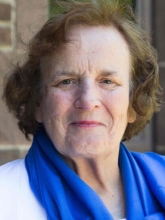
Dr. Dipali Mukhopadhyay, Associate Professor at the School of Advanced International Studies at Johns Hopkins University and Senior Expert on Afghanistan with the U.S. Institute of Peace
Event Description
Since 2001, the United States and its allies have involved themselves in matters of governance abroad, not out of an altruistic commitment to the spread of democracy, but, rather, as a function of concerns about the presumed nexus between weak statehood and violent extremism. These interventions - Afghanistan being the paradigmatic case - have engendered a kind of precarious sovereignty, one that sustains deliberately anemic forms of rule. In this lecture, Mukhopadhyay will reflect on the "war on terror" as part of a longer Western tradition anchored in imperial logics that link amorphous dangers to liberal solutions that both promise and preclude sovereignty. For fledgling states, counter-states, and not-quite-states, the possibility of less tenuous standing remains perpetually on the horizon, as do the threats of a tighter foreign stranglehold or precipitous withdrawal. This 21st century geopolitical fact does not preclude profound political change, even transformation on the ground, but it does condemn that change to reside in a kind of suspended state, a perpetual limbo from which it may never escape.
Speaker Bio
Dipali Mukhopadhyay is an Associate Professor at the School of Advanced International Studies at Johns Hopkins University. Mukhopadhyay is the author of Warlords, Strongman Governors, and the State in Afghanistan (Cambridge University Press, 2014) and, with Kimberly Howe, of Good Rebel Governance: Revolutionary Politics and Western Intervention in Syria (Cambridge University Press, 2023). She currently serves as Senior Expert on Afghanistan with the U.S. Institute of Peace and as Vice President for the American Institute of Afghanistan Studies. She previously held faculty positions at the University of Minnesota and Columbia University and a post-doctoral fellowship at Princeton University. She earned her doctorate at The Fletcher School at Tufts University and her B.A. in political science at Yale University.
Honoring Catherine M. Kelleher

Each year, during Women's History Month, we host a special Forum dedicated to honoring CISSM's founder, Dr. Catherine M. Kelleher, for her contributions to the field of international security policy. Professor Kelleher was a champion for women in the field through mentorship and the establishment of Women in International Security (WIIS).
Dr. Kelleher is also the inspiration for the Catherine M. Kelleher Fellowship Fund for International Security Studies, which supports an exceptional graduate student pursuing her master’s or doctoral degree at the University of Maryland School of Public Policy. You can contribute to the Catherine M. Kelleher Fellowship Fund for International Security Studies here.
In remembrance and deep admiration for Dr. Kelleher's enduring legacy, we extend an invitation to explore more about her extraordinary life and contributions. For those seeking a closer look into her story, additional insights can be found here.
